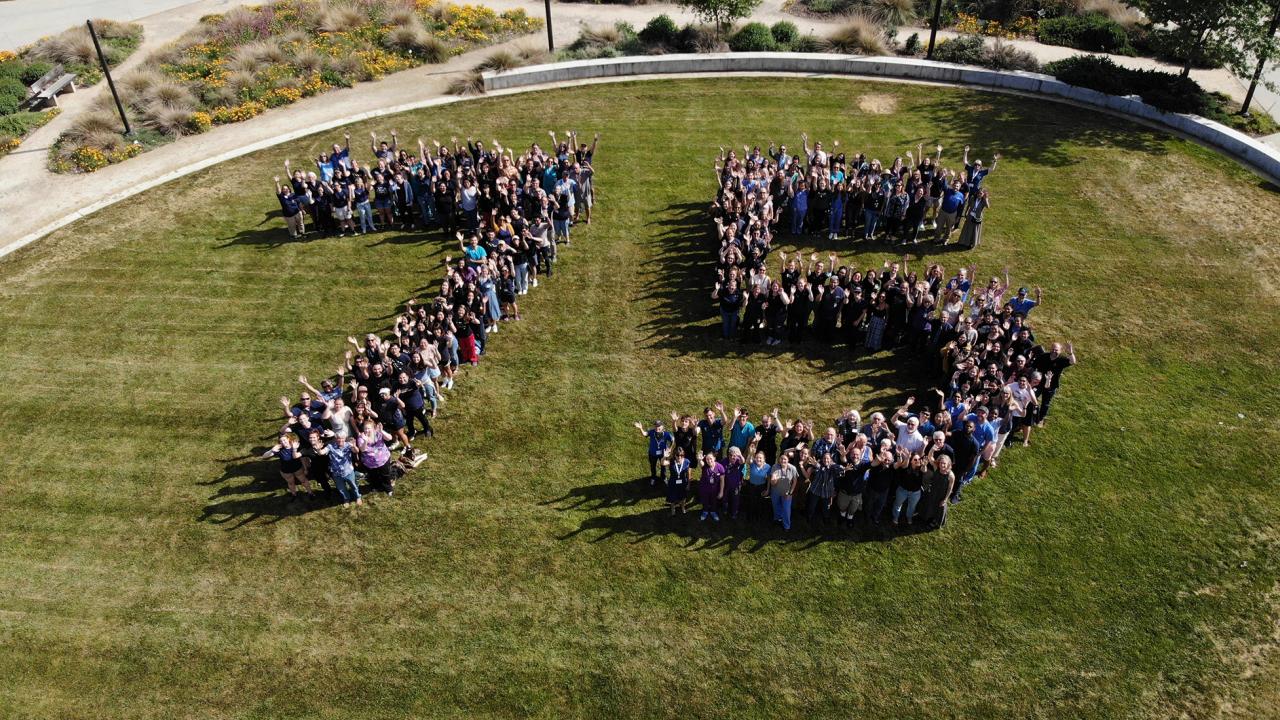Davis is an ideal place for those with beloved pets or those who simply love animals. Some furry friends have even become local celebrities, such as Cheeto the orange tabby cat, who roams near the Department of Physics building. Cori, a black Labrador retriever, has become a regular attraction at Aggie sports events, including football and baseball, and even has her own Facebook page.
The animals in our lives are more than pets or livestock. They’re companions and family members. So, it is stressful when they need urgent medical attention. When that happens, we know we can turn to world-class care nearby at the UC Davis Veterinary Teaching Hospital. Now in its 75th year, the veterinary hospital is celebrating its place in our community and planning to expand services.
Their services also include aiding wildlife, exotic animals, aquatic mammals and fish. They are frequently doing research that is at the nexus of animal, human and environmental health.
A reputation for excellence
Many of you know that, consistently, UC Davis is ranked first in the nation and first or second in the world for veterinary science. Our veterinary teams are often on the front lines when wildfires, natural disasters and other emergencies strike California. They are called to assist other states and countries, as well. For example, some of our veterinarians are at Montana’s Yellowstone River, monitoring the wildlife impacts of the bridge collapse there.
The University of California began veterinary research in the 1800s and helped launch the modern era of veterinary medical education in Davis with the opening of our School of Veterinary Medicine in 1948. The school started leading the field immediately, and over the decades has created breakthroughs in vaccines for livestock diseases, pioneered surgical techniques and launched the world’s first specialty veterinary training programs.
Celebrations for the 75th anniversary started in April and will continue through 2024, ending with a gala on June 29.
Serving more animals
The added capacity and expanded services underway include a new emergency room and intensive care unit that opened in May. It nearly doubled the square footage of the former space. With a caseload of more than 50,000 patients each year, this facility will help us meet ever increasing needs for care.
Another area where we’ve seen increasing demand is for specialty veterinary surgeries, particularly in orthopedics. Later this summer, we’ll open the Center for Advanced Veterinary Surgery to accommodate more of these procedures.
The center is a 6,600-square-foot facility that provides life-saving orthopedic treatments for cats, dogs and other companion animals. It uses the latest advances in anesthesia, surgical instruments and cross-sectional imaging equipment to support innovative surgical procedures.
A key attribute of the expanded surgical center is the increased capacity to perform total hip replacements in dogs. One of the top reasons that dogs are euthanized is due to hip disease and not being able to stand in their older years. Our veterinary hospital is one of few in the world that can perform this critical procedure. UC Davis is also on the cutting edge by using a 3D-printed titanium implant to perform the treatment.
With a lengthy waiting list for hip replacements, we now have a training fellowship for boarded veterinary surgeons to learn this procedure at the new surgery center. This will have impact across the field of animal care.
Overall, the new surgery center will provide much needed space to accommodate the demands of today and the future. Our current center is already on track to see 2,100 patients — up from an average of 1,750 patients per year from 2018 to 2020.
The new ER/ICU and surgical facilities are just the latest in a series of expansions occurring at the hospital. A new medical imaging center is also under construction and more projects are underway or in the pipeline. Donors have been incredibly important to these projects, and we appreciate their support.
Caring for all
Meanwhile, the university’s veterinary students continue to serve the Davis community in impactful ways. As I noted in a recent column, Davis Pet Advocacy and Wellness is a satellite of the Mercer Clinic, a non-profit run by UC Davis veterinary students, that provides free veterinary care to pets of the homeless in Davis. Their outreach happens throughout the year at the Daytime Homeless Respite Center at 5th and L streets and other locations. The Mercer Clinic’s Holiday Pet Baskets also provides toys, treats and even coats and sweaters for unhoused people and their cats and dogs each holiday season.
I ask you to join me in congratulating the School of Veterinary Medicine on its 75th anniversary. The people and animals of Davis are grateful for the school’s excellent care and innovations that benefit animal health around the world.
